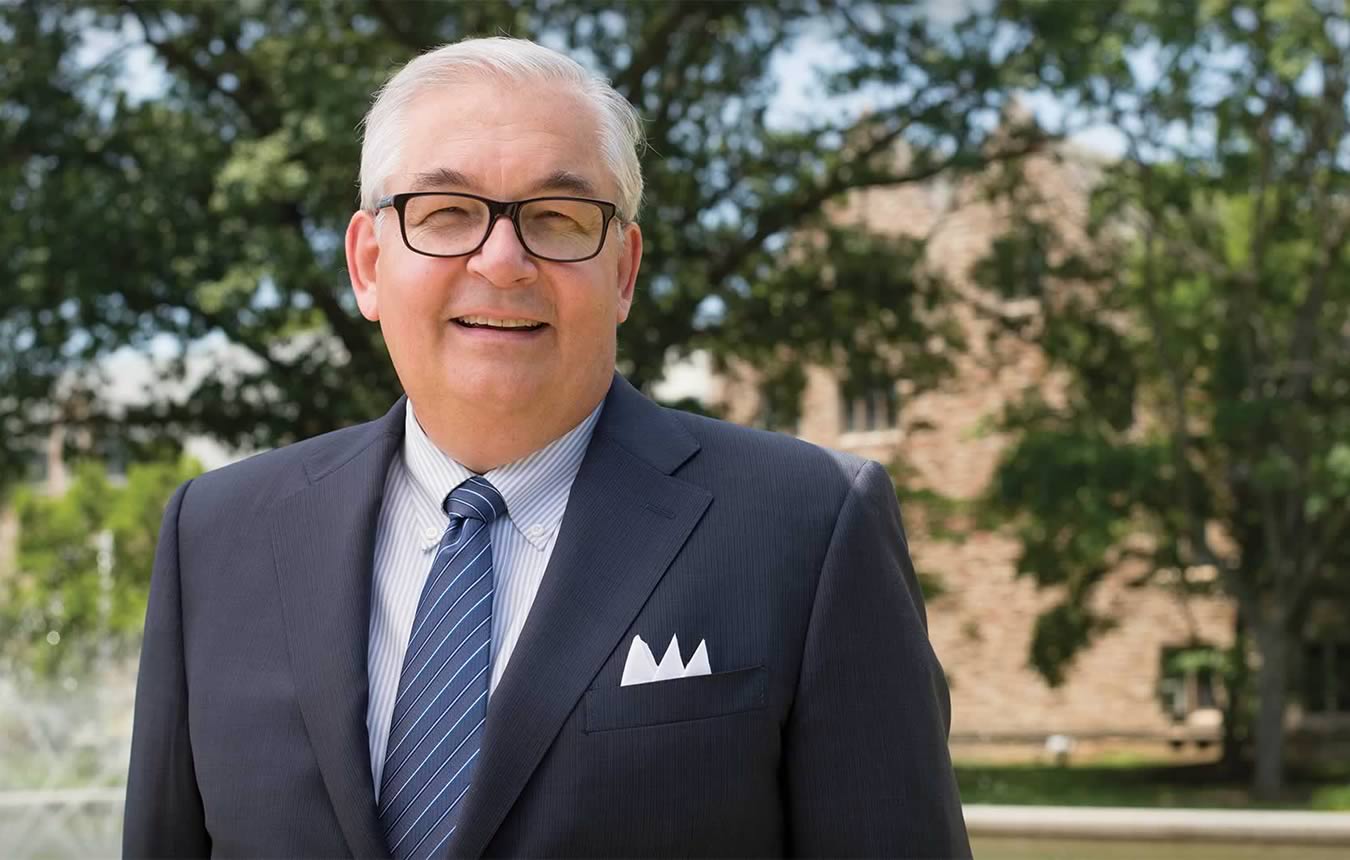
Concordia Seminary Newsroom
Dear alumni

The joyous season of Lent!
On more than one occasion, I have heard a preacher say something like, “I really don’t like Lent.” The reason given is not because of the demands of extra mid-week and Holy Week services, but it generally has to do with the somber gloominess and self-flagellation — metaphorically speaking — that seems to go with the penitential seasons.
While I generally approach the penitential seasons as an opportunity for spiritual reflection and renewal, I can see how some find all the talk about self-denial and somber penitence to be a little dark. Nevertheless, we remember that Lent is observed always with Easter in mind, right? In many languages, the word for Lent is some variation of the number 40, such as Quaresma in Spanish or Quadragesima in Latin, in reference to the 40 days of Lent. Yet simple math indicates that there are 44 or 46 days in the Lenten season, depending on whether you count Maundy Thursday or Holy Saturday as the last day of Lent. That is because the six Sundays of Lent are set aside as days to remember with joy the Resurrection of our Lord, even in the midst of the penitential focus of the season.
I guess it boils down to the true nature of repentance. What does it mean to repent? And what does repentance lead us to? You see, if we remember the true meaning of repentance, and where it takes us, it is clear that the point of repentance — the goal of repentance — is joy and praise and thanksgiving!
Martin Luther said that true repentance consists of two parts: contrition and faith; that is, sorrow for sin, but also trust that God is a loving God who forgives sin, who restores the sinner, who brings hope and joy and courage because of what Jesus has done for us!
The traditional text for Ash Wednesday, Psalm 51, is a wonderful illustration of the power and the beauty of true repentance. It demonstrates that repentance is not a negative. Repentance is not about despairing of ourselves. And though we feel deep sorrow and pain for having offended God and our neighbor, that’s only part of the story because the point of repentance is to restore to us, as King David put it, “the joy of God’s salvation.” That’s why we repent, because it leads to joy. As King David said, “Let me hear joy and gladness; let the bones you have crushed rejoice.”
Thus, we can unequivocally affirm that repentance is a joyous affair, an opportunity where God can enter into our lives in a way we never thought of. What if we thought of repentance as an occasion where God can act powerfully so our lives can significantly change? Repentance is the only way to obtain true spiritual renewal. There is no other path to spiritual renewal. And it’s not about what we do but it is about God doing something — about God entering into our frail and fragile existence and getting it right for us.
This enables us to repent with a kind of joyful abandon — a joyful recklessness even. Someone once said that “Repentance is like saying you’re sorry to a friend after he has already run to you, embraced you, kissed you and clung to you. There is nothing to hide and nothing to fear.”
The problem, I think, is that we think of repentance in the negative, yet I would suggest that it is one of the most positive words in the Bible. Though sin truly is negative, repentance is positive because in spite of the great sorrow we might feel in our hearts for having sinned against God, and in spite of the deep pain we might feel, the result of being back in fellowship with God brings great joy. When you make that wonderful discovery that repentance is to have your soul refreshed, you can understand that joyful living is the result of repentance. To put it another way, “Fear-based repentance makes us hate ourselves. Joy-based repentance makes us hate the sin.” And that is good, and that is the path to spiritual renewal.
But there is one more thing, and that has to do with passing on the joy. That’s what we see King David saying in the Psalm when he says: “Restore to me the joy of your salvation and grant me a willing spirit to sustain me. Then I will teach transgressors your ways, so that sinners will turn back to you . . . Open my lips, Lord, and my mouth will declare your praise.”
I know you are very busy at this time of year. The responsibility to bring the Word of Life in its truth and power to your people faithfully can feel like a heavy burden, but my prayer is that God will help you to enjoy this penitential season and to pass that joy along — to teach transgressors His ways so that sinners will turn back to Him and experience that same joy of salvation. God help us to open our lips and declare His praise this season of Lent and always.
And pray that we at Concordia Seminary will be able to form future pastors and deaconesses so that they, too, will experience Lenten joy in their faith and future ministries.
Sincerely in Christ,
Dr. Douglas L. Rutt
Provost
Concordia Seminary, St. Louis